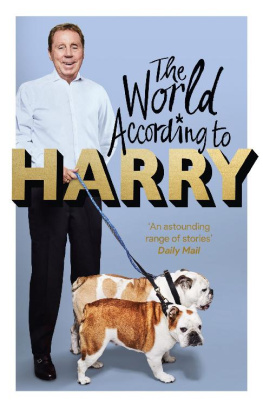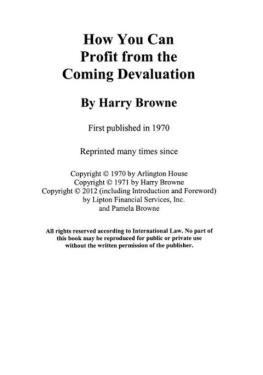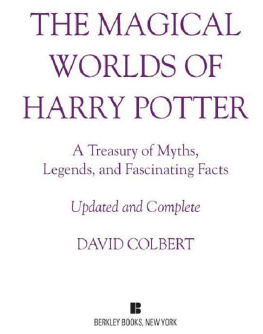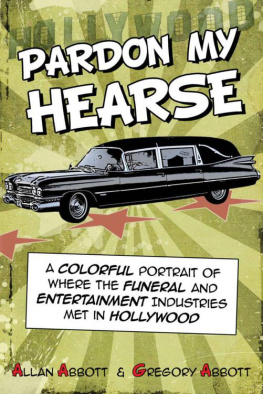Buried Secrets
Anecdotes of a Funeral Director
Harry Pope
First published in 2017 by
AG Books
www.agbooks.co.uk
Digital edition converted and distributed by
Andrews UK Limited
www.andrewsuk.com
Copyright 2017 Harry Pope
The right of Harry Pope to be identified as the author of this work has been asserted in accordance with the Copyright, Designs and Patents Act 1998.
All rights reserved. No part of this publication may be reproduced, stored in a retrieval system, or transmitted, in any form or by any means without the prior written permission of the publisher, nor be otherwise circulated in any form of binding or cover other than that in which it is published and without a similar condition being imposed on the subsequent purchaser. Any person who does so may be liable to criminal prosecution and civil claims for damages.
The views and opinions expressed herein belong to the author and do not necessarily reflect those of AG Books or Andrews UK Limited.
Setting the Scene
A nationally represented funeral company had a van converted to a private ambulance. It had room for four bodies to be securely strapped to stretchers in the rear so no staff had to ride in the back. The vehicle stopped on a steep Croydon hill, one of the stretchers was not as secure as it should have been, and the forward motion meant that it suddenly and with force hit the rear doors.
Body and stretcher landed on the road, doors wide open, as the private ambulance drove off.
Much gesticulating from anxious pedestrians, a lot of horn blowing from other vehicles. The driver pretty quickly realised what had occurred, reversed back with the assistance of his colleague riding up front, they retrieved their load, and continued back to the depot.
Nothing more would have been said, but the two men found great humour from the situation, recounting to their colleagues back at the garage. The incident soon found its way to management, an inquiry was held, and while the two men had a black mark against their records, no further discipline ensued.
These days, in the very unlikely possibility that it would even happen, the men would be so contrite, ashamed, they would report the incident and await their fate, safe in the knowledge that it would have been captured on a phone and already on social media. They just would not get away with it.
This book is set in the period between 1977 and 1992, when the funeral business atmosphere was very different from today. The funeral profession was a male preserve, with women only allowed to serve the role as funeral arranger, nothing hands-on, not allowed to be involved where any physical contact was necessary. That was because ladies were deemed too delicate to have to involve themselves in lifting anything heavy.
Of course, when men get together, they usually have a bizarre sense of humour, and this book reflects the amusing situations of the period. Thats not to say that nothing funny occurs today, its just that the standards of professionalism are far higher today, and that some of the incidents in the early days of this book were tolerated as letting off steam, just men working together, whereas today they are regarded as unacceptable.
A prime example involved a south London competitor in 1979. The two men had been to the hospital, collected the body, and were returning to the yard about five miles away. They were on overtime at an hourly rate, so decided to pop into the cafe for a bacon sandwich and a mug of tea. The Transit van with body inside were left unattended for about half an hour, and when they returned the van, and body, were gone.
It had been left in an area known for casual car crime, and its safe to assume that the miscreants had no idea as to the contents, just stealing a reasonably new Ford van. The van was missing for two days, while the funeral company managed to avoid informing the family that their relative, albeit once safely in their care, at present, strictly speaking, wasnt.
The Police were frantically looking, while of course being amused at the predicament, and it was retrieved, abandoned, two days later, with no-one the wiser. The point I make, though, was that the two men were disciplined, but not dismissed. That was the late 1970s, it certainly would not have been tolerated in this day and age. Corporate responsibility, and what is socially acceptable, have considerably improved.
To continue setting the scene, also bear in mind the funeral business scenario that was to be transformed. The vast majority of businesses were smaller family run enterprises, had been in the same family for generations, being passed from father to son. There might be a monopoly in a particular large-sized town, but nationally only two or three companies were that big.
That was to change, with the advent of mergers, acquisitions, and pure greed on the part of one particular individual, who will be mentioned later on in this book. No, dont go peeking, or you will miss memorable moments.
It was the end of the period where gentlemen were funeral directors. They were no longer called undertakers, that was considered a pass word, they wanted the respectability of the newer title. Professional standards were improving, so the staff education had to improve as well.
A manual was written by a very well respected funeral principal called Thomas Hands Ebbutt, a Croydon man following in the family tradition. This covered all aspects, so then an examination was set, so standards could be achieved. All to achieve respectability, but it was still a closed profession for newcomers. If you wanted to succeed, you had to work for a larger company, gain your Diploma, be a good person, and when you were 65, allowed to retire, usually on a more than generous final salary pension.
No new businesses were allowed to be created, for one simple reason. The death rate was in the region of 610,000 annually, and the existing companies could not create any more business. Therefore, any new business would take business away from the existing ones. Start-ups were actively discouraged.
The only way for a funeral business to grow was to acquire an existing one.
There was a lot of complacency at the time, with the local family businesses believing that because they provided the local service, to the local community, living where they worked, knowing their clientele, it had always worked in the past, so it would continue. But financial institutions were looking at the overall picture, realising that costs could be reduced by buying out a lot of smaller companies and spreading the overheads.
It is easy to forget that there are three main areas of financial outlay for funeral directors. Staff. Vehicles. Premises.
All of these would be reduced by dissemination. And the vast majority of smaller companies owned the freehold of their properties, a lot with shops on the ground floor and tied management accommodation above. Staff were kept happy this way through reduced rents in exchange for out of hours telephone and office duties.
By the time I started as a chauffeur bearer in 1977 the whole industry was ready for a major overhaul, but in my lowly role of that I was completely unaware.
My Early Days
Little realising at the time, I was very fortunate to live close to one of the best family run funeral companies in Sutton, Surrey. They really were a good company to learn with, and those three years proved to be a very good grounding and experience.
At the time, they had six local offices, with a central garage. I was allocated an Austin Princess limousine, registration MLD6D. Strange the things you remember, but it was a pig of a vehicle. Just like all the other limousines I have driven over the years, it was impractical, uncomfortable for the driver, and a fridge in winter while an oven in summer. Very few had air conditioning, they all had shiny leather seats where you had to hang onto the steering wheel when negotiating any kind of bend as you would slide away from the controls.
Next page





![J K Rowling - Harry Potter [Complete Collection]](/uploads/posts/book/117015/thumbs/j-k-rowling-harry-potter-complete-collection.jpg)



